library of congress
Latest
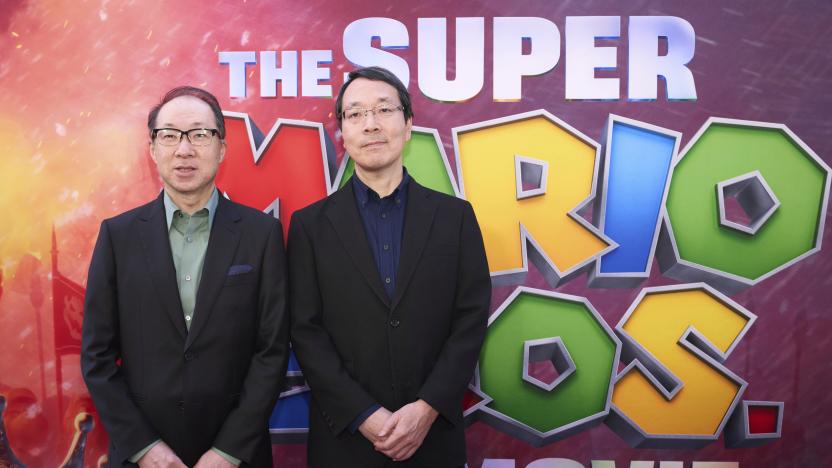
The Mario theme joins your old tweets in the Library of Congress
The Mario theme is one of 25 recordings joining the National Recording Registry this year.
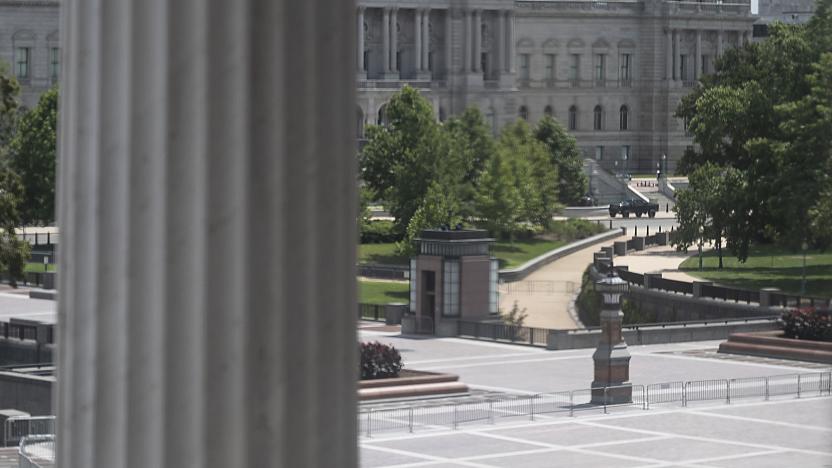
Facebook took hours to remove livestream of Library of Congress bomb threat suspect
It took Facebook several hours to pull down a livestream of a man making bomb threats at the Library of Congress in Washington D.C.
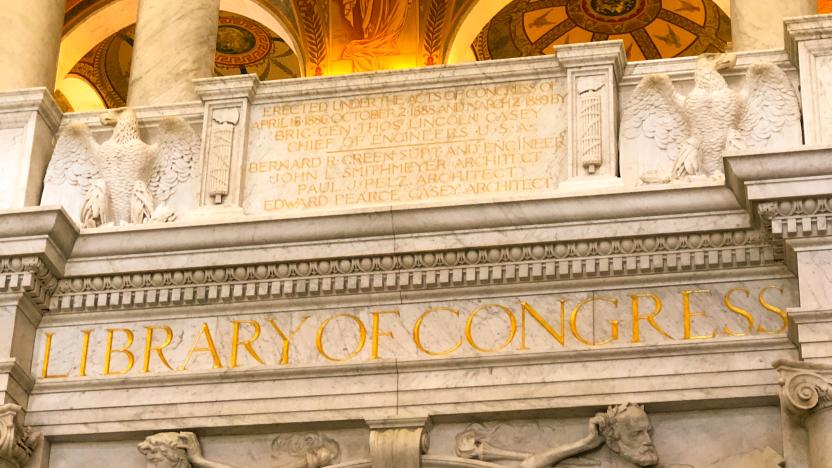
Library of Congress app lets you make hip hop with century-old samples
The US Library of Congress has unveiled Citizen DJ, a digital tool that allows you to remix sounds from its massive collection of film, television, video and sound recordings. It was created by “innovator in residence” Brian Foo to recapture the ‘80s and ‘90s golden age of hip-hop sampling.
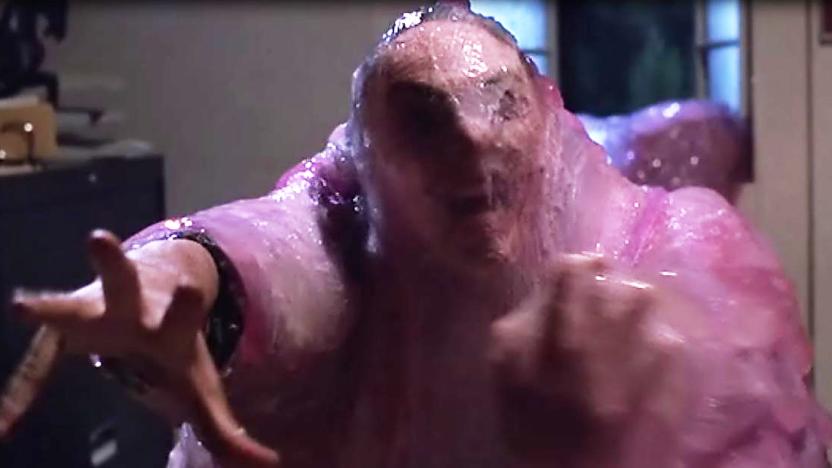
How NASA will defend the Earth against plagues from outer space
In the summer of 1957, the Earth stood witness as a meteorite cratered in rural Pennsylvania, bringing with it a people-eating plague never seen: an alien amoeba with the taste for human flesh. While we had Steve McQueen around for the first invasion, humanity is now defended against microbial marauders from outer space by NASA and its international counterparts.
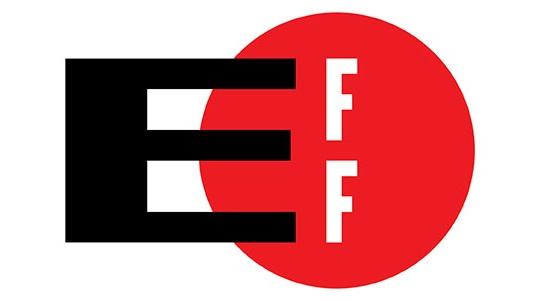
EFF petitions US government to resurrect abandoned games
The Electronic Frontier Foundation filed a petition to the Library of Congress and the United States Copyright Office this week over the modification of abandoned games, particularly those that require an online connection to prevent piracy. The EFF is seeking a change to current laws that would deem mods that strip out authentication checks as fair use of the software after developers take those servers offline. The foundation noted Civilization 5 and Mario Kart Wii as examples in its petition, though the list of eligible abandoned games goes back many years. Should the Library of Congress approve the request, legally-acquired copies of many of those games would be open to modification so players can enjoy them on third-party servers. The petition does note that MMOs and "persistent world" games would be exempt from the change, as their "audiovisual content is primarily stored on the developer's server and not in the client." [Image: Electronic Frontier Foundation]

White House announces support for unlocking cell phones
A petition on the White House's website to work for a new law universally allowing the unlocking of cell phones recently raised more than 100,000 signatures from the public, and the White House has now officially responded to the idea, stating its support. The petition refers to Section 1201 of the Library of Congress' rules, which disallows users from unlocking their cell phones (including iPhones) for any reason, even when any contracts associated with the phones has expired. The phone industry says the rule is needed in order to keep illegal phone trafficking down, but obviously lots of consumers disagree, saying that the rule is prohibitive and often leads to lots of expensive fees. The White House's statement of support isn't exactly legally powerful, as it doesn't have any direct control over the rule or the Library of Congress. But the president's office can push for a new law to overturn the rule, and of course an official statement of support from the White House can do a lot to push the issue forward. The Library of Congress sent TUAW a statement saying that "we also agree with the administration that the question of locked cell phones has implications for telecommunications policy and that it would benefit from review and resolution in that context." So there's more "review" to be done on this issue. But for now, it sounds like there's both public and administration support for a change to the rule, which means there may come a time in the future when you're guaranteed to the right to unlock your phone whenever you want.

Sony and Library of Congress launch streaming National Jukebox, ready to DJ at your local speakeasy
Who's better, Sammy Hagar or The Great Caruso? We know you have every track the Red Rocker ever laid down, but if you haven't upgraded your gramophones of the great Italian tenor, today is the first day of the rest of your life. The Library of Congress, working with Sony, now streams a collection of 10,000 historical recordings, including Caruso and other pre-1925 greats. This "National Jukebox" is a bit of a hodge-podge, including everything from early jazz to poetry to yodeling, but digging through the archive is half the fun. But while access to this material is great for sound preservationists, commenters on BoingBoing point out that it's not truly public domain work: thanks to our spaghetti-tangle of copyright arcana, Sony still owns the rights. It's allowing users to stream but not download, and technically could revoke its gratis license at any time. So get your Caruso fix while you can.

Alexander Graham Bell's sketchbook reveals ridiculously wonderful imaginings
The image above is a page from Alexander Graham Bell's sketchbook, a self-portrait from the 1870's, is just one page from the large collection of the inventor's papers, now housed at the Library of Congress. Bell's sketches which document the invention of the telephone are the most fascinating of the lot, and happily, the Library has digitized them and made a large selection of them available online.

PAX East todo: The Digital Game Canon, a panel about video game preservation
PAX East is underway and we're dedicated to making sure each one of you makes it to one very special panel. But first, we'll level with you: it requires some homework on your part. "Ten Games You Need to Play: The Digital Game Canon" borrows its name from the 2007 GDC session of the same name, in which an incredible group of panelists (including this writer) deigned to select ten video games that deserved to be preserved. We're revisiting that effort, and reconsidering it with a stellar group of panelists. This year's panelists include: Henry Lowood is a professor (and curator!) at Stanford University and chairman of the IGDA's preservation SIG. His academic work is focused on the preservation of video games. Chris Melissinos was a longtime gaming evangelist at Sun, before founding Past Pixels, an organization dedicated to the preservation of video games. He's currently curating the Smithsonian's Art of Video Games exhibit, scheduled to open in 2012. Jon Gibson has worn many hats (including games journo and screenwriter hats) but is currently busy with iam8bit, the LA-based outfit responsible for art exhibits, books, and excellent game marketing gigs (think: Capcom Fight Club). David Gibson has been employed as a Processing Technician in the Library of Congress's Moving Image section since 2006. In that time, he has become a key player in the Library's initiative to collect, preserve, and provide access to America's gaming heritage. Chris Grant is a writer who works from home in his pajamas. And your homework: Get a crash course in game preservation by listening to the entire hour-long "b-side" interview with Henry from Episode 2 of the excellent A Life Well Wasted podcast, which you can find here. Read the excellent "Preserving Virtual Worlds" final report while waiting in PAX East lines (download it here!) and, when you finish that, move over to "Before It's Too Late: A Digital Game Preservation White Paper" (which you can download here). VOTE! Head to www.artofvideogames.org and "vote for games that you think are visually spectacular or boast innovative design!" This is for the Smithsonian Institute, guys. Think about that! And, one final bit of homework: Get in line early. The panel takes place at 2pm on Sunday, March 13, at the IGDA Dev Center (on the 2nd floor, right next to Manticore Theater).

Library of Congress receives 200,000 vintage master recordings from Universal, will stream them online
The US Library of Congress hasn't been shy about embracing the modern age of digital media, though in this case it's having to deal with some decidedly lower-fi data storage. Universal Music Group has announced it's donating over 200,000 master recordings of early 20th century music to the Library, which will be cataloged and digitized -- for future safekeeping and in order to be streamed online starting in the spring. It doesn't seem, however, that the intellectual property rights will be passing with these recordings, as the press release states this agreement continues the Library's "unprecedented authority to stream commercially owned sound recordings online." Either way, it's good to know that the original copies of works by the likes of Louis Armstrong, Billy Holiday and Ella Fitzgerald will reside in the hands of an organization dedicated to their preservation. Full press release follows after the break.

Library of Congress eyes National Film Registry streaming scheme
In the digital age, libraries all over the country have been looking for ways to remain relevant and useful as they continue their core mission of giving people access to media and educational materials. To that end, The Library of Congress has announced plans to make selections from the National Film Registry available for streaming online. Of course, as the Federal Times notes, some of the copyright owners might balk at the suggestion (it's hard to imagine George Lucas ever letting anyone freely stream Star Wars) but in theory this isn't a bad idea, at all. "I hope we'll be able to work something out," said Librarian of Congress James Billington. "[The registry] has great educational and inspirational as well as entertainment value." Besides, if you don't give kids a legal, safe way to watch the classic W.C. Fields flick "It's a Gift" (1934), they're just going to get it from illegal torrent sites or from guys selling bootleg DVDs on Penn Avenue in Garfield.

Report warns that Copyright Act threatens recorded sound preservation
A new report issued by the Library of Congress entitled The State of Recorded Sound Preservation in the United States: A National Legacy at Risk in the Digital Age, has some sobering findings on the state of historic audio, whether on vinyl, wax cylinders, or optical disc: namely, that it's "at risk." What does that mean, exactly? It seems that a combination of antiquated copyright laws and a wide array of digital formats means that libraries are often unable to back up its holdings (even when it is legal to do so). "Were the law strictly enforced," the report explains, "it would brand virtually all audio preservation as illegal." It goes on to detail steps that could be taken to fix these problems, were lawmakers not too busy grandstanding and cozying up to special interest groups, including: reformation of the Copyright Act, decriminalizing the use of orphan works for which no rights holder can be established, establish a legal way for third parties to reissue long out-of-print "abandoned recordings," and establishing legal ways for libraries to more easily make audio copies and share files.

Library of Congress rules in favor of jailbreaking
Today, the Library of Congress has ruled in favor of both jailbreaking and unlocking phones according to an Associated Press Statement published on the New York Times. The Library of Congress statement can be found here if you'd prefer to read the original. The Washington Post has also picked up this story. This ruling responds to an EFF petition, one opposed by Apple, that maintains the current status quo, allowing iPhone owners to continue both practices, and pushes things even further. Jailbreaking allows iPhone owners to download third party applications outside of Apple channels and unlocking offers a way to use iPhones on third party GSM networks, typically T-Mobile.

Library of Congress adds DMCA exception for jailbreaking or rooting your phone
This is a wild one, and we're still parsing through the announcement, but on the surface it looks like the Library of Congress has added new anti-circumvention exceptions to the DMCA that, among other things, allow people to tweak their handsets for the purpose of installing legally obtained software -- known as jailbreaking in iOS land, and rooting in the Android / webOS world. Check out the full statement from the Librarian of Congress, which is mostly an update of existing exceptions on record, after the break, but here's the primary excerpt: Computer programs that enable wireless telephone handsets to execute software applications, where circumvention is accomplished for the sole purpose of enabling interoperability of such applications, when they have been lawfully obtained, with computer programs on the telephone handset. Now, before all you EFFers go all totally wild (although it's undoubtedly a win for the EFF line of thinking on this issue), you should know that this in no way requires Apple to jailbreak your phone for you, or lay down its arms in this ongoing fight. Basically, they just can't sue you for the specific act of breaking their protections, but there's nothing stopping them from putting those protections in there in the first place, or for suing you for an infringement not covered in this exception -- like distributing Apple code in a non-Apple-approved way, or installing illegal or pirated software. Not that any of you jailbreakers would ever do that. What's more, the DMCA still broadly forbids distributing to the public any "technology, product, service, device, component, or part thereof" that's primarily designed to break access controls, so Apple can always go after the Dev Team directly -- and we'd still keep those dreams of opening Joe's Jailbreak Hut on ice for now. On a more minor note, the language pertaining to unlocking a handset to work on another wireless network has also been expanded from "firmware" in 2006 to "firmware or software" in the 2010 revision. Also, and very exciting for the YouTube set, the section pertaining to cracking a DVD video and excerpting scenes for commentary or criticism has been expanded beyond educational use into documentary and non-commercial applications. [Thanks to everyone who sent this in]

Hyperspectral imaging reveals Declaration of Independence rough draft dubbed citizens 'subjects'
Imagine, if you will, Thomas Jefferson sitting down to pen (or quill) a rough draft of the Declaration of Independence early in 1776... you know, when the colonies that would become the United States of America formally explained their decision to become independent states, and thus not be a part of Great Britain any longer. Imagine him writing the words "our fellow citizens" -- but know that, thanks to hyperspectral imaging, the Library of Congress has confirmed that he originally wrote "our fellow subjects" -- but then scrubbed it out and replaced it with the word "citizens." Personally, we feel pretty happy with the knowledge that the founding fathers chose their words so carefully -- after all, "we hold this stuff to be super obvious 'cause all dudes are like, basically the same" just doesn't have the same ring to it, now does it? Hit up the Boing Boing source link for far more photos.

MPAA suggests teachers videotape TVs instead of ripping DVDs. Seriously.
So the Copyright Office is currently in the middle reviewing proposed exceptions to the DMCA, and one of the proposals on the table would allow teachers and students to rip DVDs and edit them for use in the classroom. Open and shut, right? Not if you're the MPAA and gearing up to litigate the legality of ripping -- it's trying to convince the rulemaking committee that videotaping a flatscreen is an acceptable alternative. Seriously. It's hard to say if we've ever seen an organization make a more tone-deaf, flailing argument than this. Take a good look, kids. This is what an industry looks like right before it dies. Video after the break.[Via BoingBoing]

Second Life Insider Week In Review: 10/22 - 10/28
This is the weekly roundup of the best articles from the past week's events on Second Life Insider. Daniel Terdiman's Entrepreneur's Guide to SLHow do the successful companies do it? Find out with this book! Six of the best for copyright violatorsThe latest copyright violations in SL The Ed Wood Machinima FestivalSome machinima is so bad it's good -- and these are the ones we want! New Species of Sunfish and Albatross DiscoveredNot the RL organic kind, but these wonderful new vehicles from Cube3 CSI:NY airs episode featuring Second Life - impressionsOne Insider's take on how the CSI:NY episode fared Exclusive preview of Real Life gameThis is so Meta it's scary! Dilbert Creator Scott Adams Comes to Second LifeScott Adams signs copies of his new book in SL CSI game - first thoughtsYou've seen the episode; what is the game like? Avatars Across Worlds: Nay, No, FehNot everyone thinks we need standards for virtual world interoperability LL to Help the Library of Congress Preserve VideogamesFinally, a little respect for videogames, from an unlikely, but welcome source

IRENE seeks to digitize, preserve fragile recordings
Granted, it's no Commodore 64, but the Library of Congress is yet again warming up to modern technology in order to save some of its most precious at-risk recordings from decades (or longer) ago. Dubbed IRENE (Image, Reconstruct, Erase, Noise, Etc.), the system was created by scientists at the Lawrence Berkeley National Laboratory to help preservationists "rapidly convert 78 rpm shellac and acetate discs" to digital form, and it is slated to also "remove debris and extraneous sounds that contribute to the deterioration of recordings." The next step in the sound restoration project is to create a fetching system that is simplistic enough for employees to understand and utilize, and we suspect the RAID vendors are already lining up to provide the terabytes exabytes of storage that will likely be needed.[Image courtesy of IRENE]

'No iPod Movie Rips' says Library of Congress
According to MacWorld UK, the Copyright Office of the US Library of Congress has rejected a petition which requested that owners of iPods and other portable media players be allowed to rip the CDs and DVDs they own to their own playback devices. You'd imagine, wouldn't you, that you should be allowed to transfer material you own so long as you make sure that multiple copies would never be played simultaneously. But no. The RIAA strenuously disagrees. Apparently space-shifting and format-shifting do not count as non-infringing uses. You can read the Electronic Freedom Foundation's reply to the ruling here.








